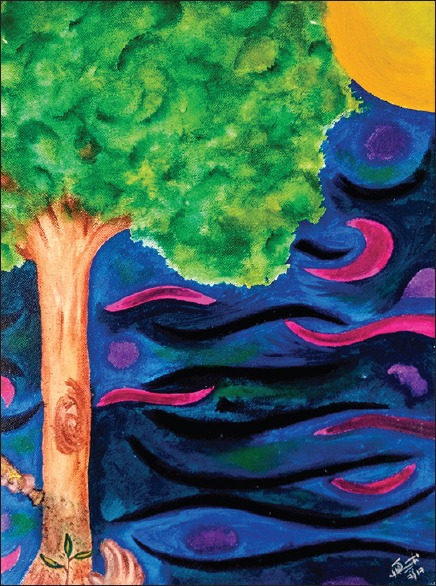In the field of child development, there has been a constant nature versus nurture debate among professionals. While, nature is the genetic predisposition or biological makeup of an individual, nurture is the physical world that influences the nature. Some theorists lay emphasis on “stability” and others on “plasticity”.[1] However, this debate is redundant now. Behavioral epigenetic research has indicated that life experiences can affect gene expression.[2] In other words, nature is vulnerable to nurture, and there is evidence for bidirectional and interactive effects between parenting and children's characteristics.[3] During various phases of development, children need appropriate experiences that support their interest in exploration, experimentation, and self-direction.[4] Hence, modifying nurturing ways by adapting to the nature of a child will lead to desirable consequences both to the individual and society at large. This has been explained by using the analogy of nurturing a plant [Figure 1].
Figure 1.

Nurturing nature
Every sapling can grow into a tree with a tough trunk that supports itself and branches that spread across a large expanse serving multiple purposes. While, some need dry and arid environment, others flourish in moist and damp conditions. Providing care according to the requirements of a given plant will help in its growth. Similarly, every child has the potential to grow up to be a responsible adult provided the environment is conducive for his or her development. Therefore, catering to a given child's needs will facilitate the blooming process.
Financial support and sponsorship
Nil.
Conflicts of interest
There are no conflicts of interest.
REFERENCES
- 1.Berk LE. Child Development. 9th ed. Noida: Pearson India Education Services; 2017. History, theory, and applied directions; pp. 8–9. [Google Scholar]
- 2.Levitt M. Perceptions of nature, nurture and behaviour. Life Sci Soc Policy. 2013;9:13. [Google Scholar]
- 3.Kiff CJ, Lengua LJ, Zalewski M. Nature and nurturing: Parenting in the context of child temperament. Clin Child Fam Psychol Rev. 2011;14:251–301. doi: 10.1007/s10567-011-0093-4. [DOI] [PMC free article] [PubMed] [Google Scholar]
- 4.Bronson MB. Self-Regulation in Early Childhood: Nature and Nurture. New York: Guilford Press; 2000. [Google Scholar]


